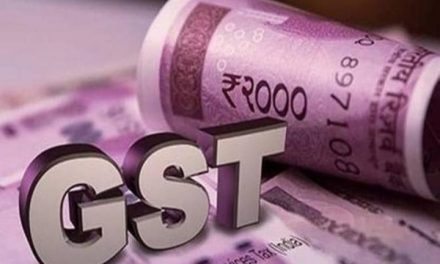Corporate tax reduces: Sitharaman announced that a domestic company can pay income tax at 22% if they don’t seek an exemption or incentives. The effective tax rate will be 25.17% inclusive of all surcharges and cess for such domestic companies.
A corporate tax, also called corporation tax or company tax, is a direct tax imposed by a jurisdiction on the income or capital of corporations or analogous legal entities. Many countries impose such taxes at the national level, and a similar tax may be imposed at state or local levels. The taxes may also be referred to as income tax or capital tax. Partnerships are generally not taxed at the entity level. A country’s corporate tax may apply to:
- corporations incorporated in the country,
- corporations doing business in the country on income from that country,
- foreign corporations who have a permanent establishment in the country, or
- corporations deemed to be resident for tax purposes in the country.
Finance Minister Nirmala Sitharaman Friday proposed to slash the corporate tax rate for domestic firms and new domestic manufacturing companies. The finance minister said this at a press conference in Panjim, Goa.
The current corporate tax rate is 30%, which has been brought down to 22%. For new manufacturing companies, the existing tax rate is 25% which has been brought down to 15%.
In order to promote growth and investment, a new provision has been included in the Income Tax act, that allows any domestic companies an option to pay income tax at the rate of 22% without exemptions. Amendments will be made through an ordinance to the IT Act. These companies will not be required to pay MAT,” said Sithraman in a press conference ahead of the GST meet.
Sitharaman announced that a domestic company can pay income tax at 22% if they don’t seek an exemption or incentives. The effective tax rate will be 25.17% inclusive of all surcharges and cess for such domestic companies. Such companies will also not be required to pay Minimum Alternative Tax. Corporate Tax reduces can help corporates in long term.
Companies, both private and public which are registered in India under the Companies Act 1956, are liable to pay corporate tax. For the assessment year 2014-15, domestic companies are taxed at the rate of 30 per cent. It’s a good move to allow the lower tax rate for small corporates. In number terms, they have reached extensively to small industries,” said Amar Ambani of YES Securities.
Meanwhile, the government has also come out with steps to help startups. The exemption on reinvestment of capital gains in startups extended to 31 March 2020
Sanjay Sanghvi of Khaitan & Company noted the Budget suggested that requisite details of investment received will not have tax issue in their tax assessments.












